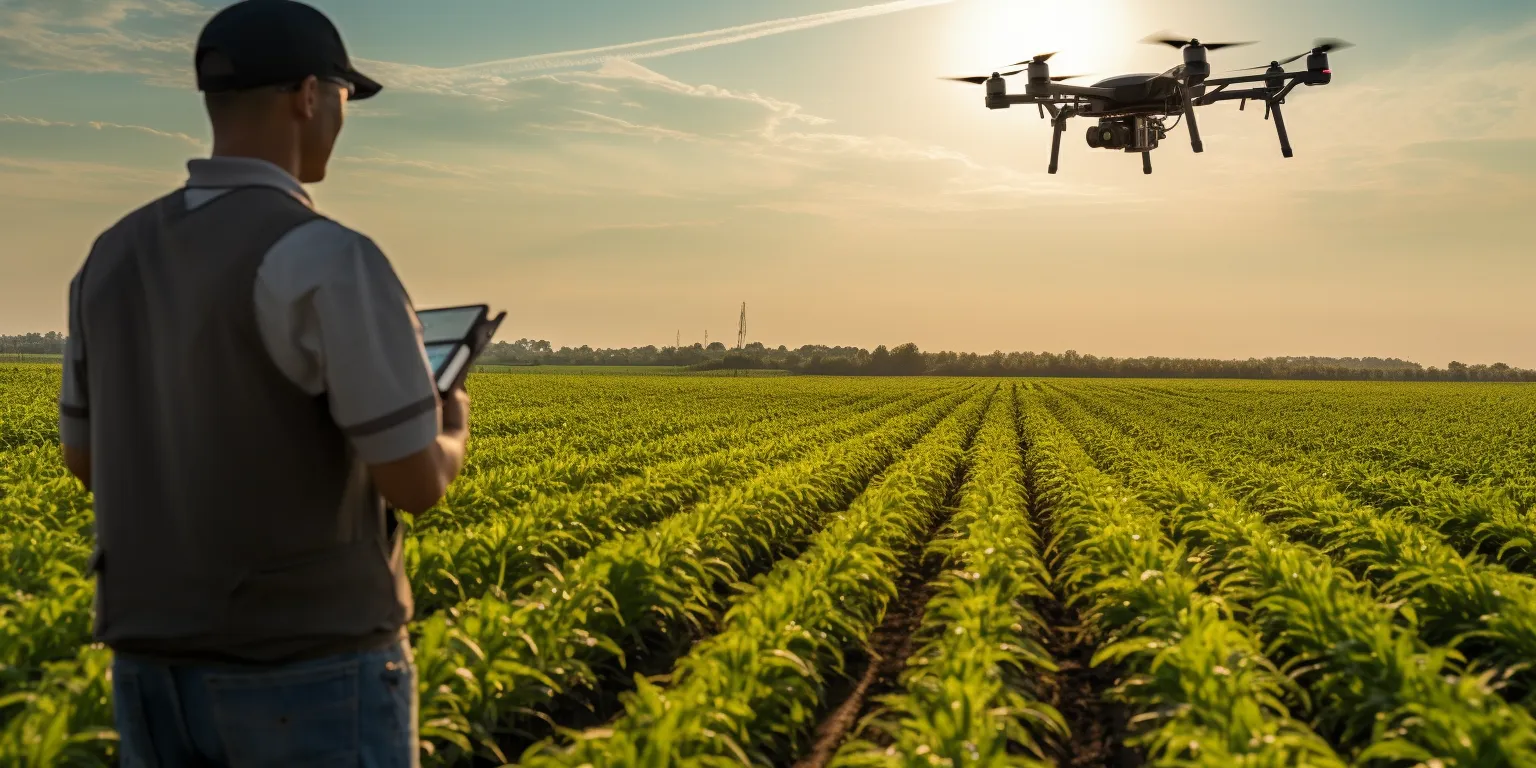NEWS
The Future of Farming: Agrawau Unveils Groundbreaking Research

Introduction to Agrawau’s Research
Farming is on the brink of a revolution, and Agrawau is leading the charge. With innovative research that promises to reshape how we think about agriculture, this groundbreaking initiative stands at the forefront of sustainable practices. As global populations rise and environmental concerns mount, finding efficient food production methods has never been more critical. Agrawau’s findings could redefine our relationship with farming, offering solutions that benefit both growers and consumers. Let’s dive into what makes their research so compelling and how it might change the agriculture landscape as we know it.
Advancements in Sustainable Farming Methods

Sustainable farming is evolving rapidly, and Agrawau is at the forefront of this transformation. Innovative techniques are reshaping how we cultivate crops while minimizing environmental impact.
One significant advancement involves regenerative agriculture. This method focuses on restoring soil health through crop rotation and cover cropping. It enhances biodiversity and boosts resilience against climate change.
Another exciting development is precision farming. Farmers can monitor soil conditions and optimize resource use tailored to specific needs using data analytics. It reduces waste while maximizing yield.
Hydroponics also plays a crucial role in sustainable methods. Growing plants without soil conserves water and allows year-round cultivation, significantly increasing production efficiency.
These advancements reflect a shift towards more responsible agricultural practices prioritizing productivity and ecological balance, paving the way for a greener future in food production.
The Benefits of Vertical Farming
Vertical farming is transforming the agricultural landscape. Farmers can optimize their use of limited land by stacking crops in vertically inclined spaces.
This method significantly reduces the need for pesticides and herbicides. With controlled environments, plants flourish free from pests and diseases.
Water conservation is another critical benefit. Vertical farms often use hydroponics or aeroponics, cutting water usage by up to 90% compared to traditional practices.
Additionally, vertical farming allows for year-round crop production. This consistency ensures a steady supply of fresh produce regardless of seasonal changes.
Urban areas stand to gain immensely as well. Fresh food will be accessible within city limits, reducing transportation emissions and spoilage rates.
Sustainability thrives in these innovative setups. Reducing carbon footprints aligns beautifully with global efforts toward more eco-friendly practices in agriculture.
Integration of Technology in Agriculture

The integration of technology in agriculture is transforming the way farmers operate. Precision farming tools are becoming essential. Drones, sensors, and satellite imagery provide real-time data on crop health.
Farmers can monitor soil conditions and moisture levels with incredible accuracy. This information allows for better resource management, increasing yields while minimizing waste.
Automation also plays a crucial role. Robotic systems efficiently handle planting, harvesting, and even weeding tasks, saving time and reducing labor costs.
Data analytics further enhances decision-making processes. Farmers can analyze trends to anticipate market demands or weather patterns more effectively.
With innovations like these, agriculture becomes smarter every day. As Agrawau leads the charge in research, the future looks promising for tech-driven farming solutions that boost productivity sustainably.
Potential Impact on Global Food Production and Security
The research conducted by Agrawau holds the potential to reshape global food production. With a growing population, the demand for food continues to rise, and traditional farming methods must catch up with this increasing need.
Agrawau’s innovative approaches could drastically enhance crop yields. By employing advanced sustainable practices, farms can produce more while minimizing environmental impact.
Food security is another critical aspect at stake. Many regions face challenges related to the access and availability of nutritious food. The solutions developed in Agrawau’s research may provide new pathways for effectively addressing these issues.
Furthermore, integrating technology can streamline supply chains, reduce waste, and ensure fresh produce reaches consumers faster.
This multifaceted approach aims to boost productivity and promote resilience against climate change and market fluctuations.
Challenges and Limitations of Agrawau’s Research

Despite Agrawau’s promising advancements, challenges persist. Funding constraints can limit the scope of research, and many innovative ideas require substantial investment to move from concept to implementation.
Additionally, regulatory hurdles may slow progress. Navigating agricultural policies can often be cumbersome and time-consuming, and this bureaucratic red tape might hinder timely experimentation with new techniques.
There is also the issue of scalability. What works in a controlled environment may not easily translate to more extensive farming operations. Adapting these methods to diverse climates and ecosystems poses another layer of complexity.
Public perception plays a crucial role. Misinformation about agricultural technology can lead to resistance among consumers and farmers, impacting the widespread acceptance of Agrawau’s innovations.
Conclusion: Looking Towards a More Efficient and Sustainable Future for Farming
The future of farming is brimming with potential, especially with the groundbreaking research unveiled by Agrawau. Their commitment to sustainable practices and innovative technologies presents a promising pathway for agriculture as we know it. Vertical farming advances show how crops can be grown efficiently while minimizing land use and resources.
Integrating technology into agricultural methods continues to revolutionize how we approach food production. The fusion of data analytics, IoT devices, and automation enhances yields and ensures that farming remains resilient against climate change.
However, it’s essential to recognize the hurdles that still lie ahead. While Agrawau’s research provides valuable insights into sustainable practices, significant obstacles must be overcome before these solutions are universally adopted worldwide.
As we look forward, one thing is clear: collaborating innovators like Agrawau and farmers worldwide could redefine our relationship with food production. A more efficient and sustainable future for farming might be on the horizon—one where both people and the planet thrive harmoniously.
Explore TodayFirstMagazine and be the first to know current news updates to stay caught up.






